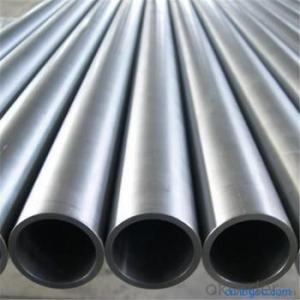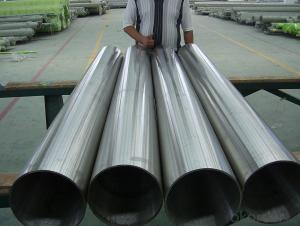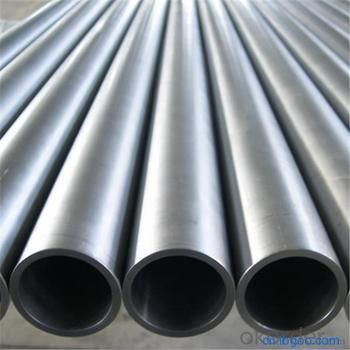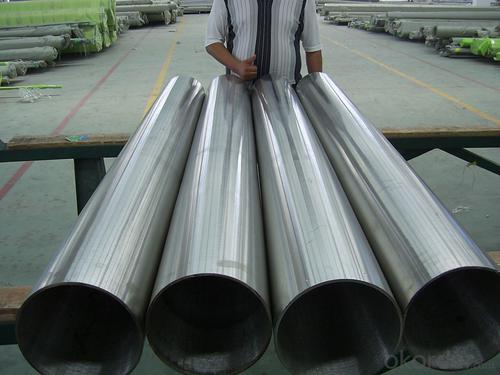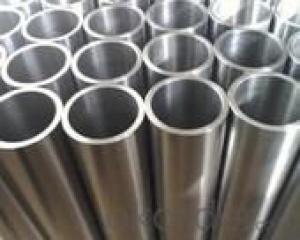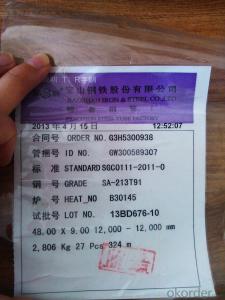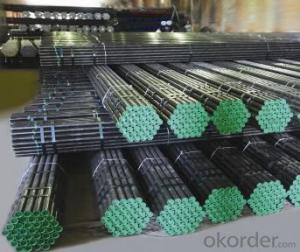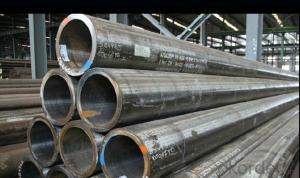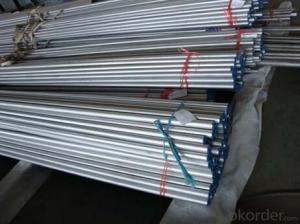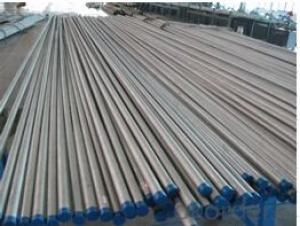ASTM A213 T91 boiler tube 328
- Loading Port:
- Shanghai
- Payment Terms:
- TT OR LC
- Min Order Qty:
- -
- Supply Capability:
- 30000 kg/month
OKorder Service Pledge
OKorder Financial Service
You Might Also Like
Alloy pipe stock grade A335P11/P22/P12/P91/P92/P9/P5 A213 T11/T22/T12/T91/T91/T9/T5
T91 alloy pipe is America national tree like ridge and America combustion new martensitic heat-resistant steel engineering company metallurgical materials laboratory research work. It is to reduce the carbon content of 9Cr1MoV steel on the basis of the content of sulphur, phosphorus, strictly limit the vanadium, niobium, adding small amount of alloying elements.
The number of K90901 T91 alloy tube
T91 alloy tube
T91 alloy pipe specifications: 8-1240 x 1-200mm
Overview of T91 alloy tube:
T91 alloy tubes for ferrite and Olympic alloy steel seamless steel tube boiler, overheating and heat exchanger belongs to (ASTM A213 / A213M-07a)
Use:
For low and medium pressure boiler (work pressure is generally not more than 5.88Mpa, the operating temperature at 450 DEG C) of the heating surface tube; used for high pressure boiler (work pressure is generally above 9.8Mpa, operate at a temperature of 450 DEG to 650 DEG C between) the heating surface tubes, economizer, superheater, reheater, petrochemical industrial pipe.
Heat treatment of T91 alloy tube:
The final heat of T91 treatment for normalizing and high temperature tempering, normalizing temperature 1040 C, the holding time of not less than 10 min, the tempering temperature is 730 to 780 DEG C, the heat preservation time is not less than 1h, the final heat treatment on Microstructure of tempered martensite
- Q: Can steel pipes be used for underground sewer systems?
- Yes, steel pipes can be used for underground sewer systems. Steel pipes are known for their durability, strength, and resistance to corrosion, making them a suitable choice for underground applications such as sewer systems. However, it is important to consider factors like soil conditions, potential for corrosion, and local regulations before selecting steel pipes for an underground sewer system.
- Q: How are steel pipes used in the construction of telecommunications towers?
- Steel pipes are used in the construction of telecommunications towers as they provide structural support and stability. They are used as the main framework for the tower, forming the vertical columns, horizontal bracing, and diagonal supports. These pipes are capable of withstanding heavy loads, high winds, and other environmental factors, ensuring the tower's durability and longevity. Additionally, steel pipes allow for easy installation and maintenance of antennas, cables, and other telecommunications equipment.
- Q: How do steel pipes handle water erosion?
- Steel pipes are highly resistant to water erosion due to their inherent strength and durability. The smooth surface of steel pipes minimizes friction and turbulence, reducing the likelihood of erosion. Additionally, steel pipes can be coated with protective layers, such as galvanization or epoxy, that further enhance their resistance to water erosion.
- Q: Can steel pipes be used for hydronic heating systems?
- Yes, steel pipes can be used for hydronic heating systems. Steel pipes are commonly used in hydronic heating systems due to their durability, high temperature resistance, and ability to handle high pressure. They are suitable for both residential and commercial applications and can efficiently transport hot water or steam throughout the system.
- Q: Are steel pipes suitable for offshore drilling platforms?
- Yes, steel pipes are suitable for offshore drilling platforms. Steel pipes have been used extensively in the offshore drilling industry due to their strength, durability, and corrosion resistance. Offshore drilling platforms operate in harsh marine environments where they are exposed to saltwater, extreme pressure, and temperature variations. Steel pipes are able to withstand these conditions and provide a reliable and long-lasting solution for transporting fluids such as oil and gas from the seabed to the surface. Additionally, steel pipes can be welded together, allowing for easy installation and maintenance on offshore drilling platforms. Overall, steel pipes have proven to be a suitable choice for offshore drilling platforms due to their robustness and ability to withstand the challenging conditions of the marine environment.
- Q: What are the advantages of using steel pipes in plumbing systems?
- There are several advantages of using steel pipes in plumbing systems. Firstly, steel pipes are highly durable and have a long lifespan, making them a reliable choice for plumbing installations. They are resistant to corrosion, rust, and other forms of damage, ensuring the integrity of the plumbing system over time. Additionally, steel pipes have a high tensile strength, allowing them to withstand high pressure and heavy loads without deformation or leakage. They also have excellent heat resistance, making them suitable for hot water and steam applications. Lastly, steel pipes offer a smooth inner surface, minimizing friction and maintaining a consistent flow rate, which is crucial for efficient water distribution and drainage in plumbing systems.
- Q: What are the different types of steel pipe fittings for chemical processing plants?
- There are several types of steel pipe fittings commonly used in chemical processing plants, including elbows, tees, reducers, flanges, and valves. Elbows are used to change the direction of the flow, tees are used to combine or split the flow, reducers are used to connect pipes with different diameters, flanges are used for connecting pipes and valves, and valves control the flow of fluid within the system.
- Q: Can steel pipes be used for petrochemical plants?
- Yes, steel pipes can be used for petrochemical plants. Steel pipes are commonly used in petrochemical plants due to their high strength, durability, and resistance to corrosion. They are suitable for transporting various chemicals, gases, and liquids involved in petrochemical processes. Additionally, steel pipes can withstand high pressures and temperatures, making them a reliable choice in the demanding environment of petrochemical plants.
- Q: How are steel pipes tested for quality and strength?
- Steel pipes are tested for quality and strength through various methods, including destructive and non-destructive testing. Destructive tests involve subjecting samples to extreme conditions such as tension, compression, or bending to assess their mechanical properties. Non-destructive tests, on the other hand, utilize techniques like ultrasonic inspection, magnetic particle testing, and radiographic examination to detect any defects or anomalies without damaging the pipes. These rigorous testing procedures ensure that steel pipes meet the required standards and can withstand the intended applications.
- Q: How are steel pipes used in the transportation of liquids and gases?
- Steel pipes are widely used in the transportation of liquids and gases due to their durability, strength, and resistance to corrosion. They are commonly employed in various industries such as oil and gas, water supply, and chemical processing. In the transportation of liquids, steel pipes are used to convey crude oil, refined petroleum products, water, and other fluids. These pipes are designed to withstand high pressure and maintain the integrity of the liquid being transported. The smooth inner surface of steel pipes minimizes friction, allowing for efficient flow and reduced energy consumption. Additionally, the strength of steel pipes ensures that they can withstand the weight of the liquid being transported without deformation or failure. When it comes to gas transportation, steel pipes are crucial for their ability to safely transport natural gas, propane, and other compressed gases over long distances. These pipes are engineered to withstand high pressures and extreme temperatures. They are also designed to prevent leakage, which is of utmost importance when dealing with flammable or toxic gases. The strength and durability of steel pipes make them ideal for withstanding the stress and strain that may occur during the transportation of gases. Furthermore, steel pipes are often used in the construction of pipelines for long-distance transportation of liquids and gases. These pipelines can span hundreds or even thousands of kilometers, and steel pipes are the preferred choice due to their high strength and long-term reliability. They can handle the weight of the pipe and the transported substance, as well as the external forces such as soil pressure and temperature fluctuations. In summary, steel pipes play a crucial role in the transportation of liquids and gases. Their durability, strength, and resistance to corrosion make them the preferred choice for conveying various substances over long distances. Whether it is for oil and gas, water supply, or chemical processing, steel pipes ensure the safe and efficient transportation of fluids and gases, contributing to the functioning of various industries and economies worldwide.
Send your message to us
ASTM A213 T91 boiler tube 328
- Loading Port:
- Shanghai
- Payment Terms:
- TT OR LC
- Min Order Qty:
- -
- Supply Capability:
- 30000 kg/month
OKorder Service Pledge
OKorder Financial Service
Similar products
Hot products
Hot Searches
Related keywords
